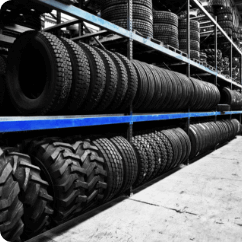What to Look for When Shopping Summer Tires
For most people, the arrival of summer dictates a change in wardrobe, with warmer clothing moved to the bottom drawer or the back of the closet. This change in seasons is also a good time to think about the tires on your car. Specifically, this is the time to consider switching to summer tires.To get more news about car tire, you can visit gofortunetire.com official website.
For people who enjoy driving and have invested in a car that delivers superior performance, a set of summer tires could bring out the best in that vehicle. The following slides examine some of the potential advantages, and disadvantages, of switching to summer tires. We will also show what may be a viable alternative to a summer tire.

Traction
Summer tires deliver superior traction on dry and wet pavement, according to Woody Rogers, Director of Tire Information at Tire Rack. However, some summer performance tires do sacrifice a bit of wet pavement traction in pursuit of the ultimate grip on dry pavement, which could cause your car to hydroplane. Even if you are not interested in performance driving, this added traction in an emergency could be, if not a lifesaver, a fender saver. The extra grip can help you come to a stop more quickly if you need to brake hard. Give credit for this superior warm-weather traction to the rubber compounds and tread patterns that can ignore the compromises needed to handle winter conditions like ice and snow.
Handling
Summer tires often excel at handling by delivering excellent turn-in response, which can make any car feel livelier, more responsive, and more controllable. Again, credit the design, materials, and construction that can ignore the compromises needed to deal with colder temperatures and snowy surfaces.
Ride
Summer tires at one time had a reputation for delivering a stiff ride. In fairness, many of the sports cars and sporty models that used them had suspension systems that sacrificed comfort in their pursuit of impressive handling capabilities. Still, some of those summer tires could make for a jarring ride. Fortunately, summer tires have improved, with some offering a level of comfort that was once thought to be impossible. Despite this, expect a firm ride in vehicles that can take full advantage of a summer tire’s virtues.
Noise Levels
Every tire produces some noise and summer tires are no exception. However, summer tires can be competitive when it comes to limiting noise, though there are differences based on tire brand and model.
Don’t forget that the road surface also plays a part in generating tire noise. Coarse pavement used in some parts of the country or worn pavement anywhere can make even the quietest tread compounds and patterns seem loud. Regular tire rotation can also help by reducing the likelihood of developing uneven wear patterns that can generate noise.
High Speed Stability
Summer tires excel in this category. At higher speeds they can provide a surefooted feel that drivers find reassuring. Some drivers describe this as a feeling of being solidly planted on the road surface.
Off to the Races?
For drivers who participate in autocrosses, track events, or driving schools, a set of summer performance tires will perform well on the drive to and from the event, as well as during the event itself. In many ways, this parallels the promise of the original sports cars, which were often driven on public roads to the track, where they would then compete. At the end of a mishap-free race they could then return to public streets for the trip home.
Tread Life
There is a price to be paid for the added grip that summer tires can provide. Summer tires wear out faster than far more common all-season tires. Still, tread life has improved over the years. At one time, summer tires in some applications could be expected to last for fewer than 10,000 miles. Today, these tires usually provide at least 20,000 miles of service, with some drivers reporting they have gone more than 30,000 miles on a set of summer tires, though your results may vary.